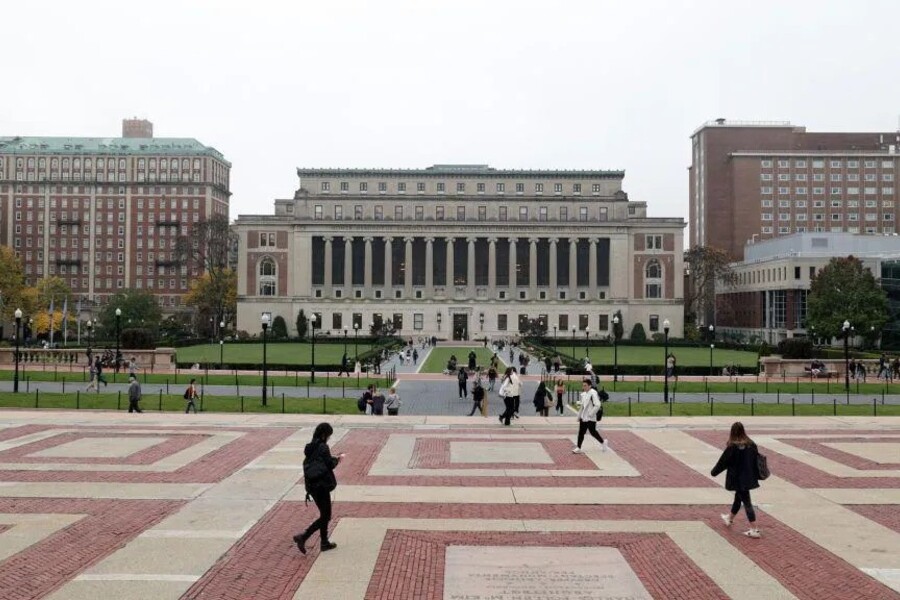Columbia University is implementing sweeping policy changes in response to pressure from the Trump administration, including a ban on face coverings, an expanded campus security force, and internal reviews of academic and admissions procedures. The measures are seen as part of the university’s effort to regain access to $400 million in federal funding that was recently suspended.
The Department of Education had given Columbia a Thursday deadline to meet specific demands related to antisemitism on campus before federal officials would consider reopening funding discussions. On Friday, Interim President Katrina Armstrong detailed the university’s compliance efforts in a message to students, faculty, and staff.
“Our response to the government agencies outlines the substantive work we’ve been doing over the last academic year to advance our mission, ensure uninterrupted academic activities, and make every student, faculty, and staff member safe and welcome on our campus,” Armstrong stated.
Among the changes is a new policy banning face masks and coverings intended to conceal identity. Exceptions will be made for religious or medical reasons. In addition, participants in campus protests will be required to present university ID upon request from school officials or public safety officers.
The university is also hiring 36 new special officers with the authority to remove or arrest individuals if necessary. These officers are undergoing training and credentialing by New York law. While Columbia builds its internal security capacity, the university will continue to coordinate with the New York Police Department.
Other structural changes include placing the university judicial board under the president’s office and creating a new Office of Institutional Equity staffed with 57 full-time employees tasked with investigating discrimination complaints.
In response to concerns about academic balance, Columbia will appoint a senior vice provost to review Middle Eastern studies programs to ensure course offerings are comprehensive and unbiased. The university will also review its admissions practices to recommend ways to ensure fairness and neutrality.
Additionally, the administration has committed to adopting a stance of institutional neutrality, with a campus-wide policy currently in development to formalize this approach.
The university’s swift response has drawn mixed reactions from students. Some expressed concern over the implications for academic freedom and student expression.
“It’s never the place of the government to do these things,” student Yousif Elhaj said.
“I think it’s kind of honestly disgraceful,” added student Landon Pottebaum. “Columbia has such a long reputation of being a protest school. This is just an act of cowardice, quite honestly.”
The Department of Education has not yet confirmed whether the compliance measures will lead to reinstatement of the suspended federal funding. For now, Columbia stands at a pivotal moment, balancing federal pressure, student concerns, and institutional policy reform.
